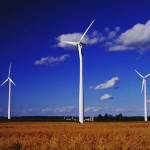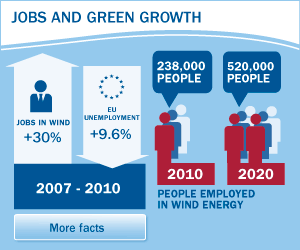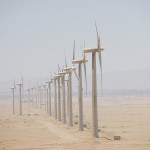This month’s online Comment Visions forum centres exclusively on wind power, asking: to what extent should we encourage the growth of wind energy in our future energy mix? And the response is positive: from around the world, respondents are singing the benefits of wind power.
Kenneth Reed, founder of Natural Alternative Fuels inc, says that the wind, when harnessed is, “a natural tool that provides man with a clean solution to the problem of declining natural resources, competition (war) over existing resources, addiction to foreign oil, pollution of air and water, cancer and asthma causing emissions and global warming.”
Reed’s comments are echoed by David Hurwitt, Vice President of Optiwind, who says that wind is an, “endless resource that arrives for free and leaves no waste in its wake.”
EWEA’s COO Bruce Douglas points out that wind power is already part of the answer to the multiple climate, energy and employment crises in Europe. Wind is, “already expanding significantly and this growth must be encouraged until we reach 100% renewables in Europe. By seizing this opportunity now Europe will set an example for the rest of the world,” he says.
Backing Douglas, Michail Georgiev, manager at Energoconsult ltd, notes that, “wind is the only renewable source that has the technical and economical potential to reach between 40 and 50% from total energy production in the medium term.”
The President of the African Wind Energy Association, Hermann Oelsner, outlines wind power’s potential development advantages, “wind energy is particularly advantageous for the African continent because the philosophy behind the technology is in cohesion with the overall social and economic development strategies of most African nations.”
Th
 Installed wind power capacity continued to grow around the world last year despite the ongoing financial uncertainty with Europe remaining the number one regional leader, according to a new report.
Installed wind power capacity continued to grow around the world last year despite the ongoing financial uncertainty with Europe remaining the number one regional leader, according to a new report.






 Comments
Comments

